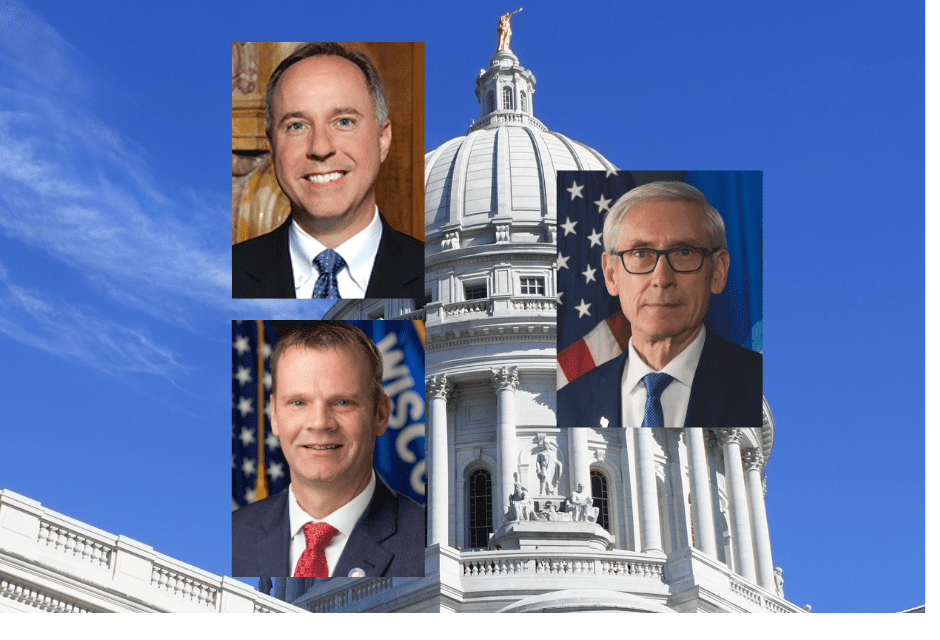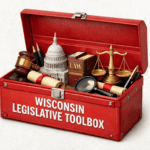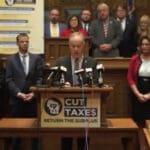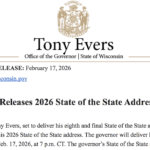May 11, 2025
Wisconsin Assembly Speaker Robin Vos revealed tensions in the state’s budget battle by publicly calling out Governor Tony Evers for dodging direct negotiations with Republican lawmakers. In a sharply worded post on X (formerly Twitter), Vos wrote:
Vos’s post linked to a video recently shared by Governor Evers in which the Democratic governor outlined his priorities in what he called “the most pro-kid budget” in state history. The video, released directly to social media, emphasized child care, healthcare affordability, education, and environmental safety.
“Republicans axed my plan,” Evers said in the video, noting that GOP lawmakers “gutted over 600 provisions” from his budget proposal, including investments in public schools, efforts to reduce child care costs, and funding for safe drinking water. “Wisconsinites are sick and tired of a do-nothing legislature,” Evers declared.
Behind the Public Messages, a Breakdown in Direct Talks
The public back-and-forth comes amid a breakdown in personal negotiations between Evers and Republican leaders. The only known in-person meeting between Governor Evers, Speaker Vos, and Senate Majority Leader Devin LeMahieu in the last two years occurred on March 26, 2025. Although the governor’s office described the meeting as “productive,” it confirmed that further negotiations would take place at the staff level — a decision that has since become a flashpoint for GOP criticism.

Republican lawmakers, led by Vos, argue that Evers is sidelining meaningful negotiation by relying on intermediaries. Vos has repeatedly stated he’s willing to meet again but says the governor is choosing not to. His frustration reflects broader Republican concerns about transparency and engagement during a year with historic fiscal stakes.
The Budget Stakes: Tax Cuts, Child Care, and a Record Surplus
At the center of the dispute is how to allocate a projected $4.3 billion state surplus. Evers has proposed a broad package of targeted investments in health care, early childhood education, and infrastructure. Republicans have responded with deep skepticism, removing more than 600 provisions from his proposal via the powerful Joint Finance Committee, including plans to legalize marijuana, expand Medicaid, and a host of other pet policy projects.
How Wisconsin’s Budget Process Works
Wisconsin’s state budget is drafted biennially, beginning with the governor’s proposal. The Joint Finance Committee, composed of lawmakers from both chambers, then reviews and revises the document before it is sent to the full Legislature. Once passed, the budget returns to the governor, who can sign it, veto sections using a powerful partial veto, or reject it altogether. If the budget is not resolved by the July 1 start of the fiscal year, all state-funding continues at the levels of the current budget.
In recent cycles, the initial budget offered by Governor Evers has been largely rewritten by Republicans early in the process — a trend repeated this year. Evers’s use of the partial veto in 2023 to extend property tax hikes for public school funding until 2425 further intensified Republican efforts to curb his executive power.
As the two sides continue to clash — with Speaker Vos demanding direct talks and Governor Evers throwing out bottom lines on X — Wisconsin’s next biennial budget remains in limbo. For now, the closest negotiations may be playing out not in meeting rooms, but on social media.















